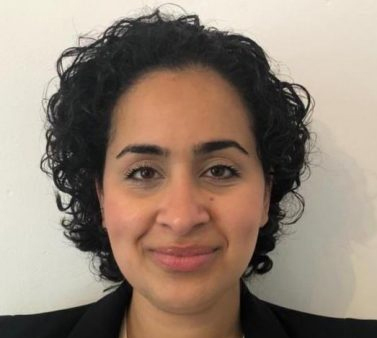Lawyer Monthly hears from Kiren Azam, whose career trajectory changed dramatically through the Transition to Teach programme.
As an immigration lawyer, I worked as part of a private immigration team on asylum and immigration cases, EU residence and nationality law. In 2020, I decided to make a major career change and train as a secondary school French teacher, supported by the Department for Education-funded Transition to Teach programme.
The reason I went into law in the first place was due to the encouragement of those around me, such as teachers and family. They advised that my skills and personality would be well suited to law, and this advice followed through to me studying for a law degree. After law school, there was the expectation and a certain pressure that I would continue to the next stage and become a lawyer.
Without that encouragement into law, I would have chosen to study French or history. Law wasn’t perhaps the career I had envisaged for myself when I was younger but I could see that my skills fit the law profession. I naturally gravitated into leadership roles and it was something I enjoyed.
After graduating, it was straight to a law firm, with a focus on immigration and particularly in the realm of deportation of foreign nationals. I had my daughter, moved firms and deliberated with the idea of taking final exams. Again, the encouragement was there for me to stay in law, and my colleagues and mentors were supportive in helping me develop my career.
However, in 2020, I decided to train as a teacher, moving from London to Bradford and starting initial teacher training. My route into teaching was a school-centred initial teacher training (SCITT) course, which is a practical route into teaching.
Again, the encouragement was there for me to stay in law, and my colleagues and mentors were supportive in helping me develop my career.
I had fantastic teachers at school which contributed to my respect and admiration for the profession. I grew up in Brent, London, and one teacher that really stood out was Andria Zafirakou, who was awarded the Global Teacher's Award in 2018 - the first UK teacher to win this award. Andria was an advocate for equality, championing inclusion and respect for all. Andria would stand by the school gates at the start and end of the day, greeting pupils in their mother tongues. If a pupil needed someone to stand up for them, if they were being mistreated or misheard, Andria would be that advocate. Andria was hugely inspirational to me as a young woman.
Law is a very well respected career, and I’m sure the perceptions of the law profession contributed to the advice from my parents and teachers to carve out a career in law. I feel that perceptions of teaching are also very positive nowadays, particularly during the pandemic, as we have seen how hard teachers have worked. The support that I’ve had since starting my teacher training has been incredibly strong.
Transition to Teach has been invaluable to me during the transition to my new teaching career. One example is the assignments. I was quite used to academic writing, but writing in law is quite different from writing in education. Having a highly qualified guidance and development adviser from Transition to Teach on hand, to answer questions and provide support, has helped so much.
It’s also about having a mentor outside of the school setting, professional guidance, and wellbeing and mental health support which is vital in such a fast-paced, responsible role. In the early stages, we talked about what transferable skills I could bring to my new career as a teacher, which was illuminating and reassuring too, knowing that I already had many of the skills that would ensure success.
[ymal]
The transferable skills that I can take from law to teaching including being able to work and perform in a high pressure environment, communication and that drive to go above and beyond for my students. My goal is to be a teacher who is as passionate about the rights, freedoms and aspirations of her pupils, as Andria once showed me was possible. Hopefully, once I qualify, I can work with pupils in disadvantaged areas and perhaps be that inspiration to the young people I teach.





















